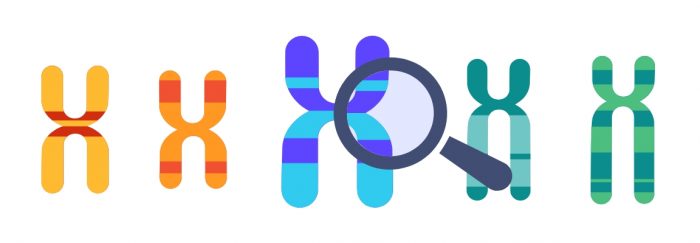Father’s Day, depending on the country is celebrated on one day or another due to historical, social or religious reasons, among others.
Mostly, this day is celebrated during the month of June, although there are exceptions such as Spain, Italy, and Portugal, countries where it is celebrated in March.
The changes that men undergo when they become fathers had not been fully investigated, but recently more resources have been devoted to understanding how it impacts their genetics, biology, and even their psychology.
Let’s see what science says about fatherhood.

Is it true that there is a type of DNA that is only passed between males
In men’s DNA, we find two types of chromosomes: the X chromosome and the Y chromosome, the latter being absent in women. Therefore, the sex at birth of a baby will be determined by whether or not it has the Y chromosome.
Therefore, the genetic information present in this chromosome will only be transmitted if the baby is a boy, following a paternal inheritance pattern.
And what does this DNA contain?
The Y chromosome contains few genes, however, these are essential for embryonic development towards the male sex, for sperm production and for other issues.
In addition, at the level of ancestry, it provides us with paternal haplogroup information, which allows us to know the evolution of our paternal lineage, that is, from the most recent common male ancestor, chromosomal Adam, to the current modern population.
By the way, did you know that with this information you can know the geographic path that your genes have followed by taking the tellmeGen DNA test?
Do parents suffer from hormonal imbalances?
Hormones are present in any biological process, and this is no exception.
Surprisingly, it was seen that oxytocin, prolactin, and estradiol, which are the hormones par excellence during gestation and delivery of the mother, are also essential elements for the bond between father and baby.
On the other hand, there is testosterone, which is one of the hormones that characterizes men, since it is responsible for the development of the testicles and prostate, increase in muscle mass, bone mass, and hair growth. And, although women also have this hormone, its concentration in the body is much lower.
So, when a man becomes a father, studies have shown that the level of this hormone decreases to a third of the initial concentration. And research suggests that fathers with the lowest testosterone levels are more likely to calm the baby and generally interact with him.
Is there such a thing as a paternal instinct?
As we explained in the post on genetics and motherhood, we must differentiate between instinct and impulse since, according to semantics, there is maternal impulse and not instinct.
Instinct is the automatic, irresistible, and unmodifiable behavior that is triggered in an individual. Whereas impulse is the set of innate, i.e., unlearned, acts that drive the behavior of that individual.
The paternal drive is given, in part, like the maternal drive due to the hormonal change that the individual undergoes once he or she has a baby. And as we have seen, both sexes have some biological changes around this event. Therefore, yes, there is a paternal impulse.
Can the father suffer from postpartum depression?
There is a percentage of women who, after childbirth, suffer from depression due to the impact of emotions, including the hormonal changes that develop during this biological process.
But, as we have previously mentioned, fathers also have a modification in their hormone levels, mainly due to the decrease in testosterone. This means that men can also suffer from postpartum depression, although this percentage is lower than that of women.
Is it beneficial to spend time with our children?
The changes that the father undergoes once he knows he is going to be a father are, above all, at a psychological level, since there is a reorganization of priorities, favoring cognitive empathy.
Unlike the mother, who establishes the bond on a physical level during gestation, with the father, this bond is created later, thanks to his active participation in the baby’s care.
Did you know that you can find out some of this information by taking the tellmeGen DNA test?



